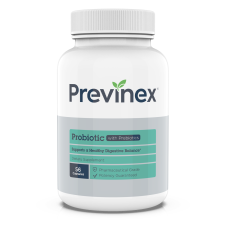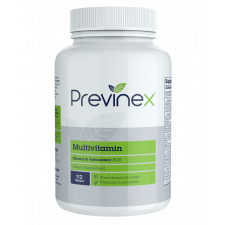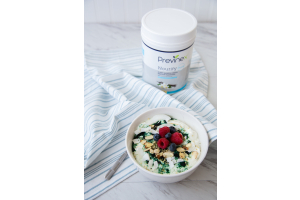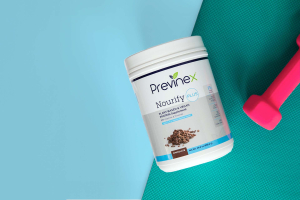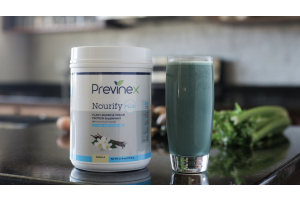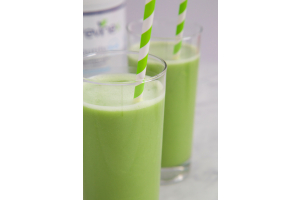
(Not so) fun fact: the human body is a host for trillions of bacteria. We have more bacteria cells in our body than we do human cells! (Yuck). And, several trillion of these bacteria live in our digestive tract—aka the gut—which is often thought of as the stomach, but it includes everything from our esophagus to our colon. Let’s dig into the basics of bacteria, probiotics, and how probiotics can help our gut health.
Healthy Bacteria and a Healthy Digestive Tract
Bacteria often get a bad rap as “germs,” especially in our culture where antibiotics and antibacterial products are frequently used. And while some (“bad”) bacteria certainly are harmful, many of the bacteria residing in our digestive tract are helpful, and thus we call them “good bacteria” or “healthy bacteria.”
Optimal digestive health happens when we have a good balance of healthy bacteria in our gut. A healthy gut is important—it goes a long way toward our overall health and wellness. Unfortunately, there are tons of culprits that can upset the balance of gut bacteria, including certain medications, overuse of antibiotics, poor dietary choices, inadequate sleep, environmental factors, and even physical and emotional stress. But we’ve got good news! The balance of healthy bacteria can be restored with the use of probiotics.
PRObiotics vs PREbiotics
“Probiotic” is an easy way to say “cultures of living, healthy bacteria that can be directly ingested into the digestive tract and benefit the host.” The host is you! These healthy bacteria can help balance bacteria levels in our gut so that the “bad” bacteria, and the diseases they cause, can be kept in check. Probiotics can be found in foods and can also be taken as supplements.
“Prebiotics'' are often included in probiotic supplements, and are actually not bacteria at all. They are food for the healthy bacteria in probiotics. Prebiotics are usually carbohydrates that the human body can’t break down or digest. So since these prebiotics are typically non-digestible by the gut, they are solely available for healthy bacteria to feed on. They act as a food source that stimulates the healthy bacteria to grow stronger, making it more effective as it supports your gut health.
Why Would Someone Need Probiotics?
So, you may be wondering why it’s important to take probiotics and make sure our gut bacteria are balanced. Well, it turns out there are A LOT of reasons. Having enough healthy bacteria is essential for proper digestion and ensuring our bodies get (and absorb) the nutrients they need. Improving digestion in this way can help treat and prevent digestive disorders such as irritable bowel syndrome (IBS), non-alcoholic fatty liver disease, necrotizing enterocolitis, abdominal pain, diarrhea, bloating, and heartburn.
The healthy bacteria in probiotics also act as a filter, helping our bodies get rid of waste products. Since most of the body’s immune cells live in the digestive tract—the gut— this function helps maintain and support the body’s immune system. By supporting the immune system, probiotics can help treat and prevent autoimmune disorders such as ulcerative colitis, celiac disease, Crohn's disease, and rheumatoid arthritis.
Research also suggests that the role probiotics play in improving digestive health can improve systemic issues such as bacterial infections, obesity, fatigue, poor sleep patterns, certain mood disorders, and skin diseases like eczema.
Basically, our overall health is tied directly to our gut health, so taking probiotics to optimize the healthy bacteria in our gut can help keep us healthy and happy!
What Are Strains and CFUs?
With any food or supplement, it’s a good idea to understand the quantity and quality of the product. The effectiveness of a probiotic depends heavily on the types of healthy bacteria strain(s) used and on the amount of bacteria in each dose. Think of strains as the quality of the probiotic and the amount as the quantity.
Each species of bacteria has many different strains, and these strains differ widely in the health benefits they provide. Within our digestive tract, we have naturally occurring healthy bacteria, which can be optimized by taking a probiotic that contains multiple healthy and diverse bacteria strains.
The amount of healthy bacteria in a probiotic is measured in CFUs—Colony Forming Units. These are live, viable bacteria cells. It’s important to know how many live bacteria are available in each probiotic because only live bacteria cells are able to recolonize in the gut and provide health benefits.
Keep Your Gut Happy!
With trillions of healthy bacteria living in our digestive tract and the many important jobs they do, it’s imperative to keep them colonized and thriving. Probiotics can help our gut function the right way, rebalance our healthy bacteria, and improve our overall wellness.
Author: Georgia Porter

